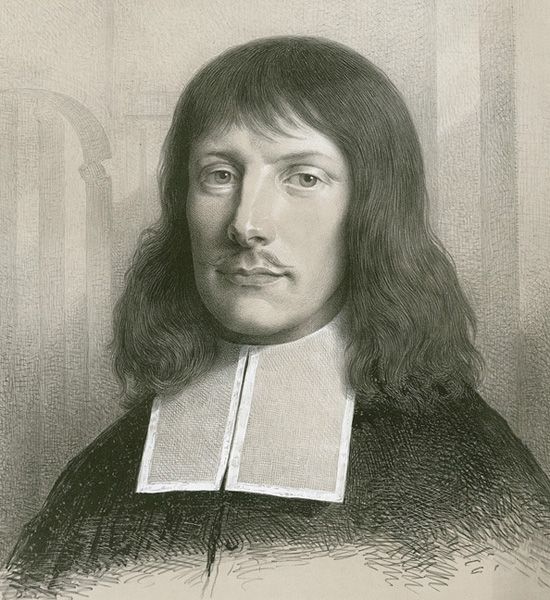|
“A magnificent hymn of praise to God, perhaps the finest creation of its author, and of the first rank in its class,” is how Church of England clergyman John Julian described the hymn Praise to the Lord, the Almighty, the King of Creation. This was written in German by the German Reformed Church teacher Joachim Neander and translated into English by British writer Catherine Winkworth.
Joachim Neander, an important hymnist after the Reformation, was born in Bremen as Joachim Neumann in 1650. His grandfather, a musician, opted to change the family name to its Greek form Neander because Greek names were the current fashion. Neander’s father died when he was young and, therefore, he could not afford a prestigious education. Instead, he studied theology at a school in his hometown. At times, Neander felt he was wasting his time, however, after hearing a sermon by Protestant pastor Theodor Undereyk, he became much more serious about his studies. In 1671, a year after concluding his education, Neander became a private tutor in Heidelberg and, in 1674, a Latin teacher in Düsseldorf. Whilst teaching, Neander also gave sermons at gatherings and services in the area, which led him to become a pastor in his hometown of Bremen. He was a very popular pastor, however, died in 1680, a year after his appointment from tuberculosis at the age of 30. Most of Neander’s hymns were written in Düsseldorf, where, new evidence suggests, Neander caused a lot of problems with the Reformed Church. When Neander began working at the Latin School, which was run by the church, he got on amicably with the minister and elders. He accepted invitations to preach and visit the sick but soon tried to introduce new practices without permission, such as private prayer meetings. As the relationship between Neander and the Church began to crumble, Neander did even more to provoke the elders, for instance, refusing to attend Holy Communion because he did not want to sit in the same building as the “unconverted”. The final straw came when Neander made changes to the timetable and buildings at the school. Neander was subsequently suspended. All Neander’s hymns were written in German, however, those that have been translated into English include All my hope on God is founded and Praise to the Lord, the Almighty, the King of Creation. The latter, known as Lobe den Herren in German, was a favourite of King Frederick William III of Prussia, who first heard it in 1800. The composer, Johann Sebastian Bach, based his Chorale cantata, Praise the Lord, the mighty King of honour, on Neander’s words. The hymn paraphrases Psalm 103 (a.k.a Bless the Lord, O my soul) and Psalm 150 (Praise ye the Lord). There are at least ten English translations of Praise to the Lord, the Almighty, the King of Creation, but our modern version is based on the translation by Catherine Winkworth in 1863. Catherine Winkworth was born on 13th September 1827 in Holborn, London, to Henry Winkworth, a silk merchant. At the age of two, Winkworth moved with her family to Manchester where her father had a silk mill. Winkworth’s education was overseen by the Unitarian minister Reverend William Gaskell and a religious philosopher, Doctor James Martineau. The Winkworth family later moved to Bristol where she got a position as the secretary of the Clifton Association for Higher Education for Women. Winkworth was a feminist and is remembered at Clifton High School for Girls where a school house is named after her. Catherine Winkworth spent a year in Dresden where she developed a fascination of German hymnody. In 1854, she published the book Lyra Germanica, which consisted of a collection of German hymns that she had translated, including one by Joachim Neander. Unfortunately, Winkworth’s career as a translator was cut short when she died suddenly from heart disease whilst in Switzerland. She is commemorated on the liturgical calendar of the Episcopal Church with a feast day on 7th August, the same day as the hymn writer and priest John Mason Neale.
0 Comments
Your comment will be posted after it is approved.
Leave a Reply. |
©Copyright
We are happy for you to use any material found here, however, please acknowledge the source: www.gantshillurc.co.uk AuthorRev'd Martin Wheadon Archives
June 2024
Categories
All
|

 RSS Feed
RSS Feed